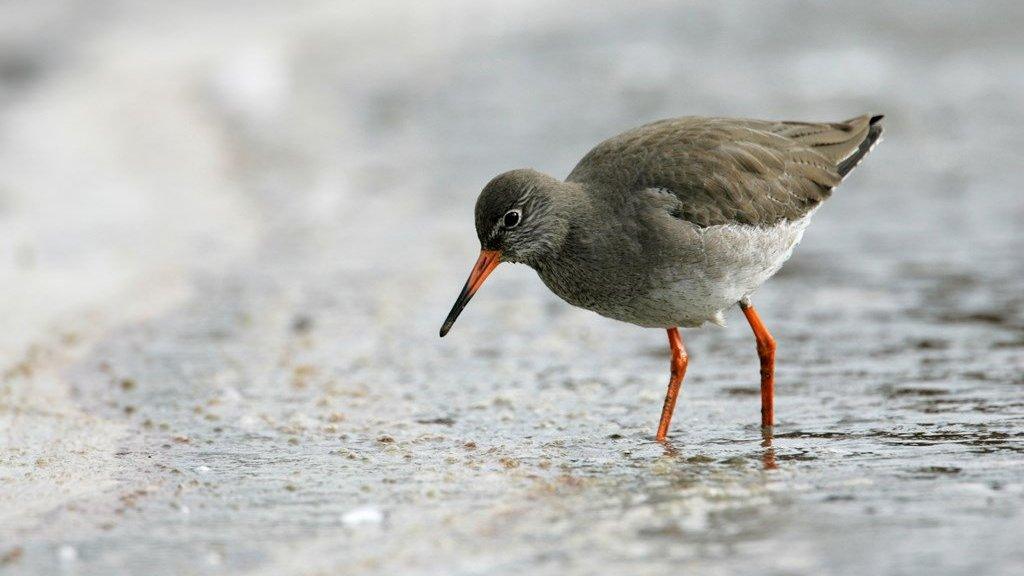Crossrail-spoil wetland provides haven for wildlife
- Published
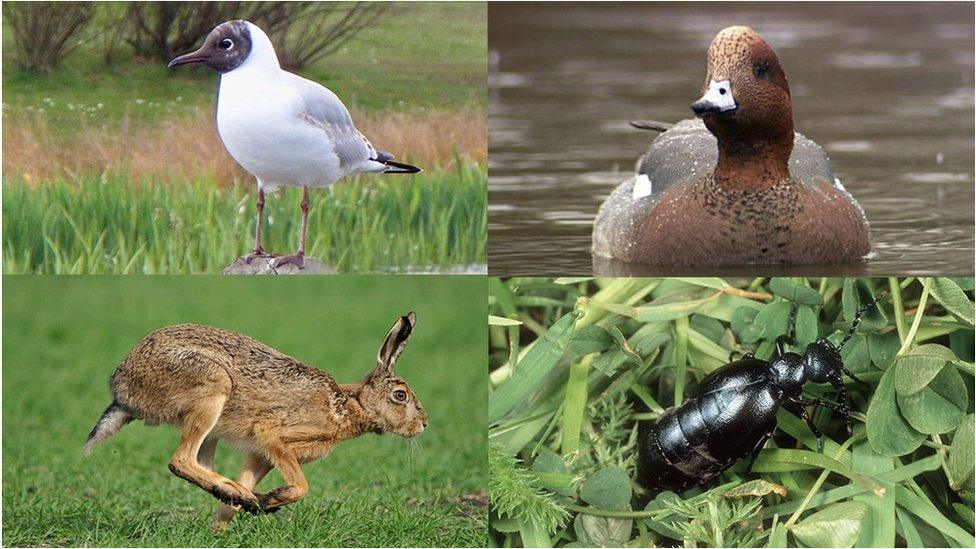
Clockwise from top left: black-headed gulls, wigeon, black oil beetles and hares have making homes in the new habitat
A £70m project to create a wetland twice the size of the City of London is nearly finished with wildlife thriving in new lagoons, marsh and fields.
New wetland on Wallasea Island, off the Essex coast, was created from tunnel spoil from London's Crossrail project.
Mark Francois, Rayleigh and Wickford MP, has put a symbolic "final touch" to the reserve's "Avocet Island".
This island had been transformed with habitats rich in wildlife on a coast adapted for climate change, he said.
"It shows what is possible when people work together to meet the challenge of future sea level rises head-on," he added.
Rare birds, insects, water creatures and plants have quickly found homes on the newly-created habitat.
RSPB warden Rachel Fancy said: "We're really excited about the future for wildlife and increasing numbers of visitors.
"Because Wallasea Island is within estuaries and near other islands, we had hoped that wildlife would find it hospitable reasonably quickly.
"We are delighted our forecasts are correct and wildlife has already moved in."
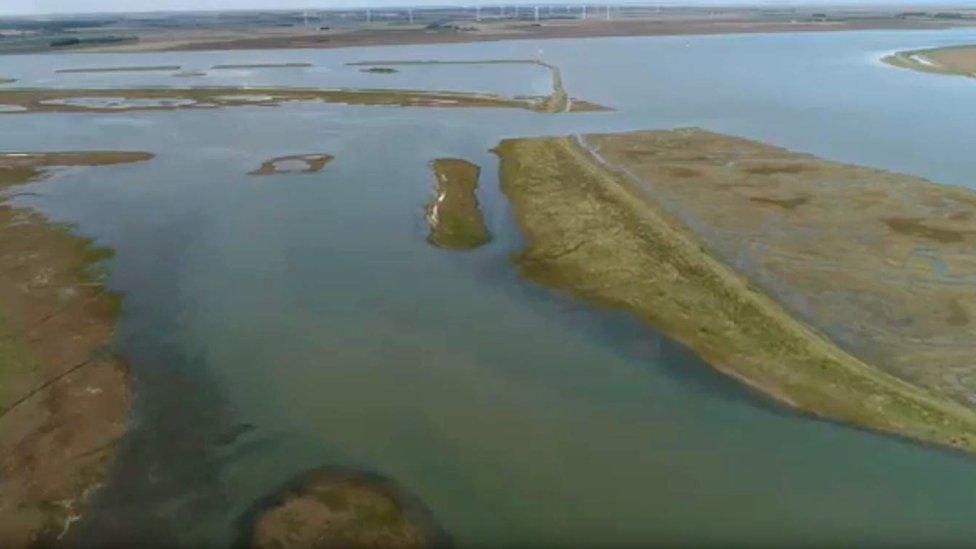
Fish and invertebrates are brought in on high tides from the estuary and help feed growing numbers of wildlife
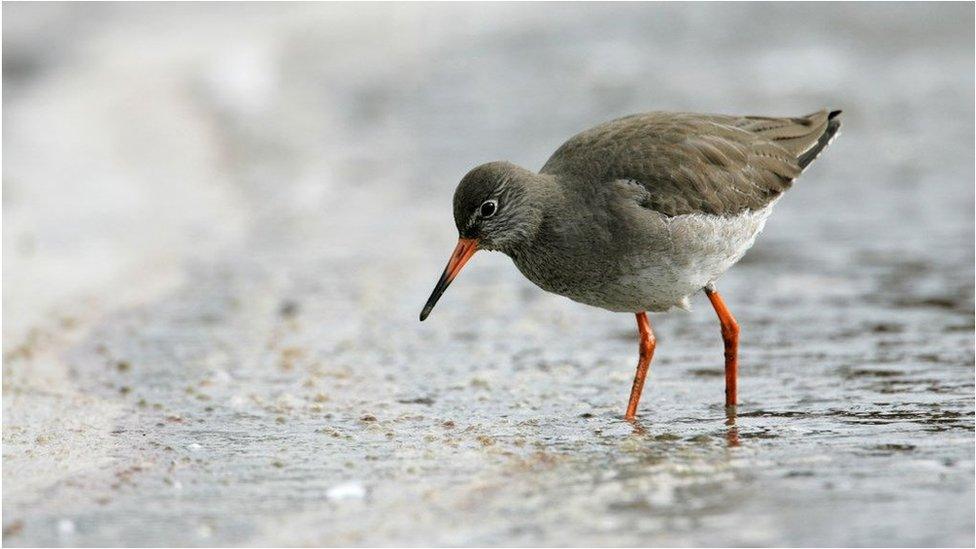
Redshank were among the newcomers at Wallasea Island to produce fledglings this season
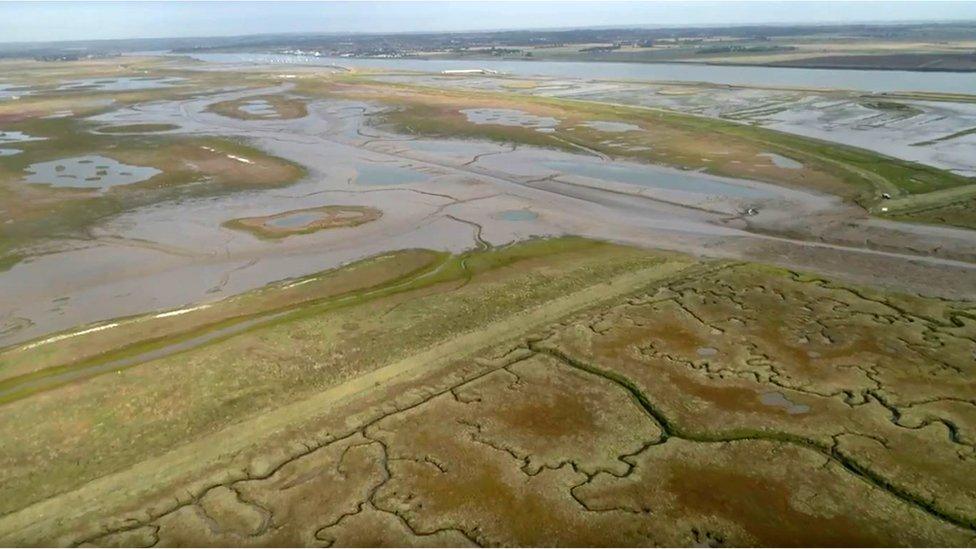
At low tide acres of shallows are revealed for waders to feed on water creature settling in the silts
A recent count revealed 88 pairs of avocet, 43 pairs of common tern and 1,000-plus pairs of black-headed gulls had made homes in new areas.
In a single afternoon earlier this year 10,000 birds were counted, including teal, wigeon, shelduck, redshank, golden and grey plovers, lapwing and black-tailed godwit.
The rare black oil beetle and hares are among other species thriving.
The wetland was designed to offset the loss of habitats such as saltmarsh and to encourage the return of species that historically bred in the UK.
These include spoonbills and Kentish plover, as well as new breeding species like black-winged stilts.
Work that began 11 years ago will create 664 acres (269 hectares) of new habitats with many different organisations joining forces with the RSPB and Crossrail to fund the £70m project, external.
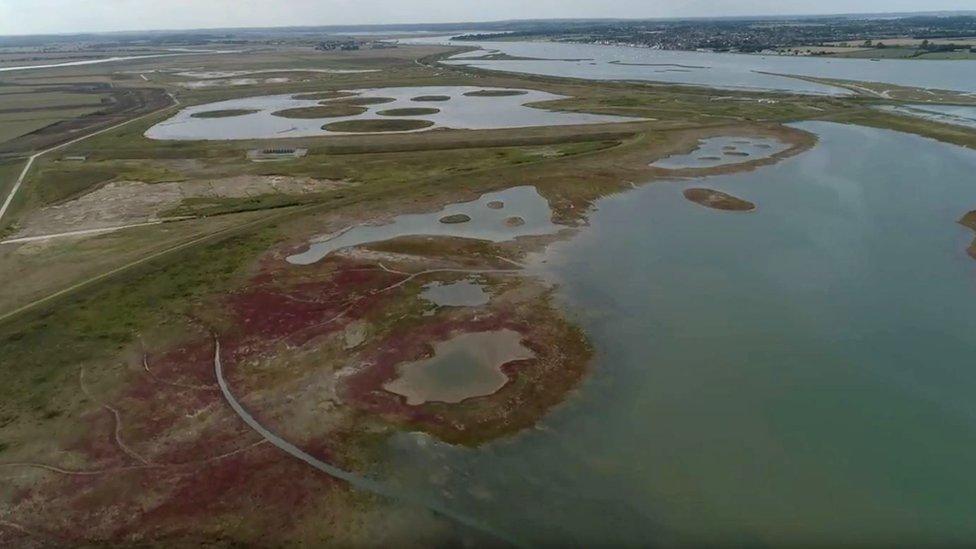
Spoil to create the wetland came from the Crossrail railway link, being dug 130ft (40m) beneath the streets of London
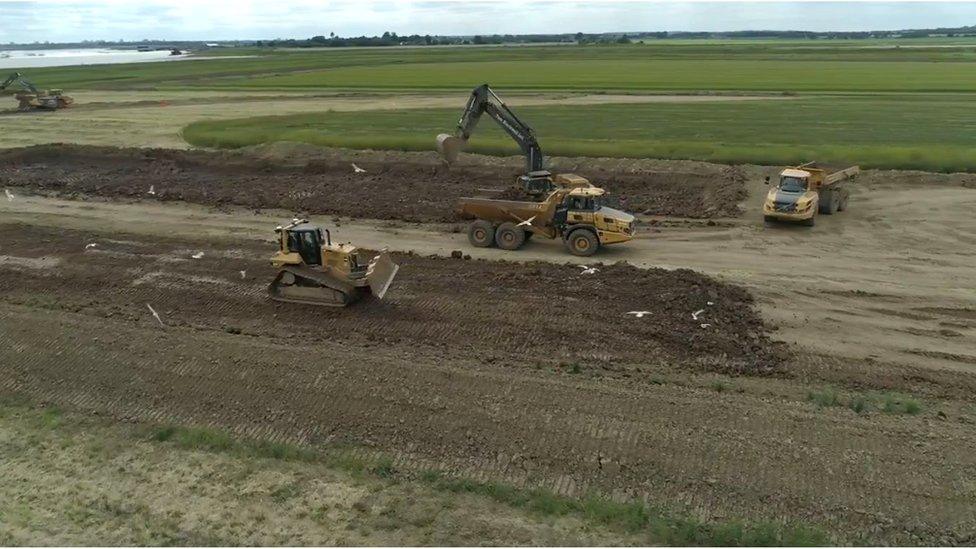
Work to restore habitat and allow for newly-created areas is due to be completed this year
- Published31 August 2018

- Published13 July 2015
